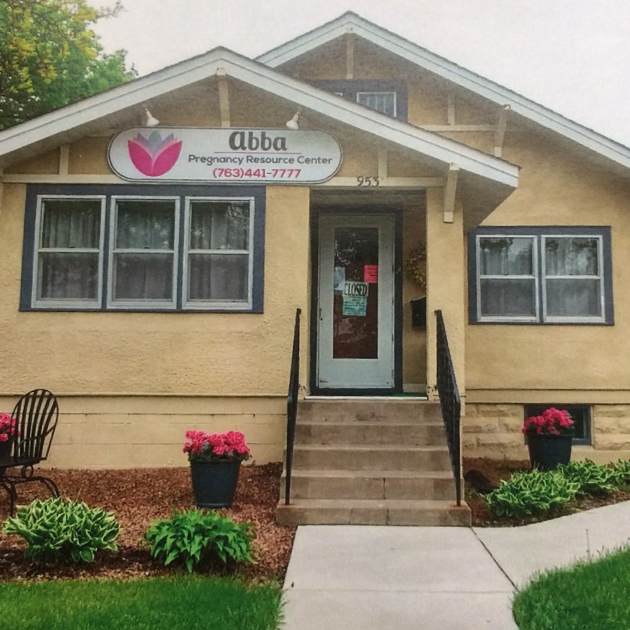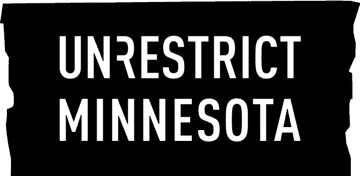My Search for Help at What Turned out to be a Fake Clinic
I fell in love for the first time at the age of 16 and with no access to birth control, I became pregnant. After missing a period, I went to my clinic for a pregnancy test. It was negative but after several more weeks, my period still never came. I returned for a second test which turned out positive and was informed that there had been an error when logging the first test. My doctor informed me that legally I had about a week to decide how I wanted to proceed. After that, the law would decide for me.
 I searched online and found Abba Pregnancy Resource Center, in Elk River – a facility that claimed to offer resources and counseling for women who become pregnant unexpectedly. I scheduled an appointment and when I arrived, I was surprised to find a residence instead of a clinic or office. Although Abba’s website said nothing of religious affiliations, it was filled with religious memorabilia. Crucifixes, statues of Jesus, and paintings of the Virgin Mary holding the newborn Jesus looked down on me as I entered. I introduced myself and was about to explain I was pregnant but before I could, a worker was shoving a pregnancy test in my face and pointing me to the bathroom. Pregnancy again confirmed, she asked me what I planned to do and started placing brochures labeled “Information About Abortion” in my hands. These were not brochures about abortion care, and I quickly realized I was not in a health care clinic.
I searched online and found Abba Pregnancy Resource Center, in Elk River – a facility that claimed to offer resources and counseling for women who become pregnant unexpectedly. I scheduled an appointment and when I arrived, I was surprised to find a residence instead of a clinic or office. Although Abba’s website said nothing of religious affiliations, it was filled with religious memorabilia. Crucifixes, statues of Jesus, and paintings of the Virgin Mary holding the newborn Jesus looked down on me as I entered. I introduced myself and was about to explain I was pregnant but before I could, a worker was shoving a pregnancy test in my face and pointing me to the bathroom. Pregnancy again confirmed, she asked me what I planned to do and started placing brochures labeled “Information About Abortion” in my hands. These were not brochures about abortion care, and I quickly realized I was not in a health care clinic.
I was startled by these brochures, full of bloody images and inaccurate information. I was discomforted about how little information there was about the actual abortion procedure. Abba claimed medical inaccuracies such as linking breast cancer and infertility to abortion, and saying it was dangerous. They said most women regret their abortions and become suicidal. The worker told me that she hoped I would make the right choice to “raise my baby or bless it with the gift of adoption”. She handed me a baby quilt and a stuffed animal that the staff of Abba had made for “girls like me”. Having a stranger imply that I was getting what was coming, putting fear in me, and being judged and shamed was the last thing I needed during what was an incredibly emotional time for me.
The worker then thanked my boyfriend for coming, but told me that although I had been making poor choices, I could turn my life around and make something good out of the situation. My boyfriend got points just for driving while I was shamed for asking about my options. I started to tear up. She placed a pin of tiny hands on my shirt, a symbol of the anti-choice movement. The images it put into my already insecure mind were shattering. The moral value of the fetus had suddenly outweighed my own. The entire experience made me feel like a sinner who deserved punishment, when in fact I was still a child who was scared and responsibly turned to adults for help. It was clear I wouldn’t find help here.
Unfortunately, experiences like mine are not uncommon. In Minnesota, there are 98 anti-abortion fake health centers. These fake clinics are not staffed by medical professionals, and pose as reliable sources for medical information and assistance for pregnant people. Due to a legislative loophole, these centers are not required to abide by HIPAA and they have hidden religious and political agendas that are meant to mislead and misinform.
No matter how a patient decides to handle their unplanned pregnancy, their personal healthcare choices should be respected. Minnesotans deserve medically accurate and unbiased resources so that they can make the most appropriate health care decisions for themselves. That’s what quality health care looks like.
